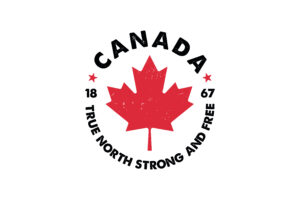Manufacturers that produce food for the United States are required to meet the federal food regulatory requirements – whether the food is produced in a domestic or foreign facility. So, to ensure that foreign manufacturers adhere to the same food safety standards required of domestic manufacturers, the FDA is expanding its use of unannounced inspections at foreign manufacturing facilities.
FSMA put the spotlight on imported FDA regulated foods in a whole new way with the Foreign Supplier Verification Program (FSVP) and the requirement for FDA to undertake a lot more foreign inspections. FSVP certainly got traction and is an increasing source of 483s and warning letters for those importers who are not compliant with FSVP. However, the necessary increase in foreign inspections has just not happened. Maybe now it will.
The agency had previously implemented a Foreign Unannounced Inspection Pilot program, intended to assess the effectiveness of unannounced inspections in identifying potential safety issues at drug or device manufacturing facilities in India and China. The new initiative expands upon that, both to include food manufacturers and to increase the level of regulatory oversight and scrutiny of foreign facilities in all countries.
This commitment to inspection expansion is notable because, as discussed in a previous article, of the 125,000 foreign food facilities subject to FDA inspection under FSMA, FDA had conducted fewer than 1,000 foreign inspections annually – far fewer than the 19,200 required by FSMA. And those which were inspected were given advanced notice. So, with the new initiative, foreign facilities who may have rarely – or never – had an FDA inspector arrive at their door, should now plan for the potential of just such an arrival, with no lead time to prepare. Additionally, those few who have been inspected in the past should expect future inspections to be more rigorous, because, even with the advanced notice at foreign facilities, inspectors found serious deficiencies more than twice as often there than at domestic facilities. Thus, FDA is also evaluating its foreign program policies and practices to heighten oversight.
The initiative may also impact the cultural practices of some countries, as it clarifies policies that inspectors cannot accept any travel accommodations from regulated industry including lodging and transportation arrangements. The goal of this is to maintain the integrity and objectivity of the oversight process. FDA also sees the expansion of unannounced inspections as helping to “expose bad actors,” those who falsify records or conceal violations.
For foreign facilities unfamiliar with FDA inspections, there are a few important things to note:
- If a facility denies access to FDA for an inspection, whether it be announced or unannounced, FDA can take regulatory action including import refusals.
- Following an inspection, the firm may be issued a Form 483 if the FDA determines a lack of compliance with the inspector’s observations classified in three ways: No action indicated (NAI) – no objectionable conditions or practices were found during the inspection; Voluntary action indicated (VAI) – objectionable conditions or practices were found, but the agency is not prepared to take or recommend any administrative or regulatory action; and Official action indicated (OAI) – regulatory and/or administrative actions are recommended.
- When objectionable conditions or practices are found, the firm is given 15 business days to respond to the 483 in which they have to explain how they will take corrective action and respond to FDA. If action is not taken, or if FDA has continuing concerns with the facility’s response, it can issue a warning letter, which can lead to the facility being placed on an import alert red list.
As all this shows, FDA inspections are serious business for which food facilities – both foreign and domestic – must be prepared at all times. With the expansion of unannounced inspections, the potential for an inspector unexpectedly showing up at your door becomes increasingly likely, and the repercussions for not being prepared can be grave. With TAG’s global footprint and industry expertise, we can be of value in assessing your operations to help ensure you are prepared, and you stay on the right side of regulation. Give us a call for information or assistance!
All written content in TAG articles, newsletters, and webpages is developed and written by TAG experts, not AI. We focus on the realities and the science to bring you the most current, exacting information possible.





